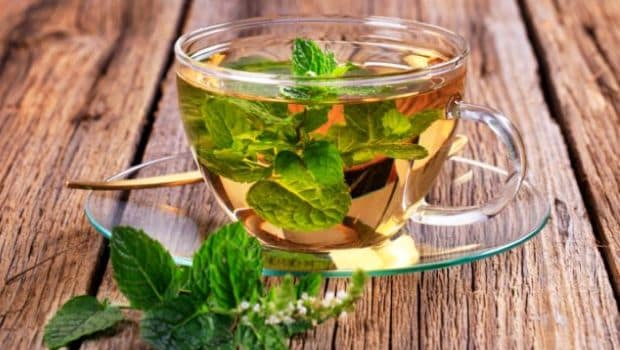Peppermint tea is a celebration of everything bright, new and inspiring. This is an energetic and green cup of joy! It has a cool, strong flavor and is a great home-grown tea. Mint tea is a delight. It likewise coordinates well with blends, for example, with green tea, raspberry leaf or even two or three new rosemary sprigs. Better yet, peppermint tea is perfect for your well-being. Appreciate it for helping to relieve a bloated tummy, loosen up the growth center or your entire being! Whether you’re sipping on an exemplary cup of peppermint tea, a revitalizing chilled peppermint tisane, or a tailor-made blend, this little spice is sure to brighten up your day. To learn more about Peppermint Tea Benefits then click here.
WHAT IS PEPPERMINT TEA?
Peppermint is a spice native to Middle Eastern countries and Europe. Some of the initial objectives were reported by the British in 1696. Its natural name is Mentha piperita which is from the Labiata type of herb. Peppermint tea is actually a tisane, which is made using mint leaves. It is otherwise called metha tea and has been famous in many societies for a long time. Mint tea is usually non-caffeinated, so it is a pleasure to have at any time of day. Peppermint is a specific aid related to the stomach, and is ideally suited for an after dinner. Mint tea has a hearty and distinctive ‘minty’ taste due to the high amount of menthol inside the leaves.
WHAT IS MENTHOL?
Menthol is a sweet-smelling synthetic compound found in mint plants. One of the earliest reported accounts of menthol was that of the German chemist Hieronymus Gobius in 1771. Menthol is infused into the oil of peppermint leaves and gives peppermint tea a cooling minty taste and smell. Menthol has a plethora of uses in medicine, having been used in a natural setting and today’s medicines remain the same.
PEPPERMINT TEA CULTIVATION
Peppermint leaves fill in moist, inconspicuous areas and many environments. As a spice, mint grows quickly and can progress, throwing off sprinters or shooting down into the surrounding soil. Anyone who has grown peppermint in their spice garden knows how solid it is as a plant. It can take control of the nursery bed here and there whenever it is passed on to its little gadgets. It is ideal to keep the peppermint in a pot in a semi-hidden place to avoid spilling over.
Mint leaves prepared for tea-production are collected in the same way as the blossom tops are uncovered. Bright green and fragrant leaves that have recently been picked make a great peppermint tisane. These leaves have more of a rejuvenating ointment concentrate, making a wonderful, revitalizing tea. When choosing any tea, it is essential to choose naturally grown tea that has not been treated with pesticides. In some cases insecticides can alter the type of tea. Like most teas, most brewed and best mint tea brews are made using fresh or dried mint leaves.
HEALTH BENEFITS OF PEPPERMINT TEA
The regular oils in peppermint have been used historically to treat acid reflux, restlessness and bad-tempered gut conditions. Peppermint tea also has anti-inflammatory properties and can be used to treat throbbing pain, especially associated with stomach upset. Peppermint tea has a calming and cooling effect, which generally relieves an upset stomach. The menthol present in peppermint loosens the abs and also has pain-reducing properties. It is especially good for reducing abdominal contractions and discomfort.
Read more- How To Put Professionalism Into Your Teaching
Mint tea also helps detoxify the stomach, which can help with assimilation. Stomach corrosive associates food with it and works its way through the gastrointestinal system. When gastric erosion is ending, it has downstream benefits to the rest of the stomach related structure. The liver and gallbladder are animated to make bile and the small digestive tract is closed off to deliver protein. This means that when peppermint tea is consumed regularly, the incidence of loose bowels and clogs is reduced. Similarly, a concentrate from the UK showed that peppermint tea reduces belching, squeezing and heartburn by reducing the development of gas.
Freshens Your Breath
We know about the use of mint in toothpaste for this reason. Bad breath (halitosis) can be a degenerative problem that affects many individuals. Most of the time, bad breath is caused by the vagaries of unfortunate microorganisms in the mouth. The menthol in mint leaves regularly has antimicrobial properties. So drinking mint tea can be a simple way to speed up your breathing and clear up a possible hidden cause. Shared profit!
Peppermint also helps bind to and eliminate mixtures from food that cause rancid breath, for example, from garlic and onions. To get the most extreme new breath benefits, be sure to partake in some peppermint tea produced using new or dried leaves.
